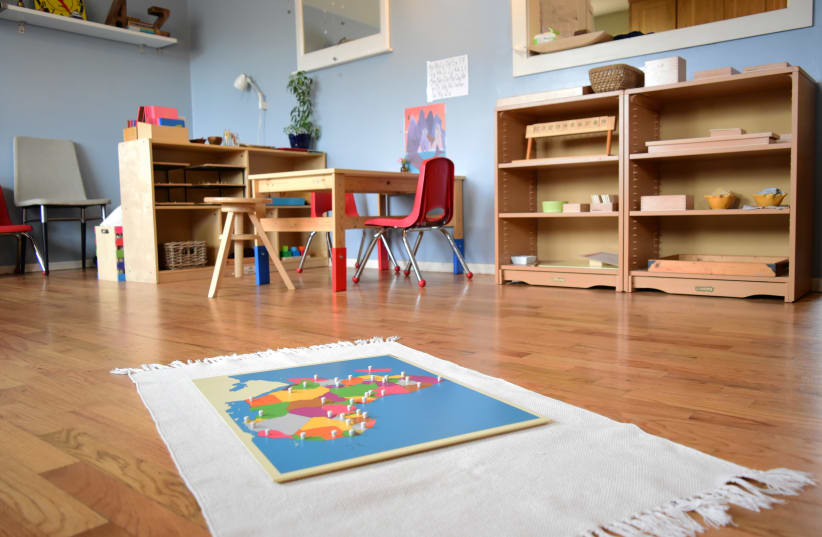For most kids, it’s hard to acclimate to a new daycare or nursery school where there are new children along with new teachers and assistants. Still, most kids will adjust after a few weeks. What should you do in a situation when your child, even after having several weeks to adjust to the new setting, doesn’t want to go? What are the signs that you shouldn’t press your child to go and instead look for a new school?
You searched, collected recommendations, interrogated fellow parents and saw dozens of daycare providers or nursery teachers. You chose the place that seemed to be the most suitable for your child, but you still need to know if your child is being treated well when he/she is being cared for by others.
Dana Amar, a certified behavioral analyst with a master’s degree in education, a lecturer and expert in family development, seeks to start from the end: it’s natural and logical that you shouldn’t be quiet. It won’t really pass with time. It's a new feeling and it's here to stay: You’ll always be vigilant and will scrutinize what’s happening with your child, and the child's job is to signal and express feelings and needs as he/she develops.
You need to be alert, pay attention and stay tuned for signs so that you can solve problems as they occur.
This is the place to mention that all beginnings are difficult. Adapting to a new kindergarten is a challenge for both the child and you. It can include a variety of new behaviors that will suddenly happen in a repetitive cycle. The questions that need to be asked all the time are what is the duration of these behaviors? What is their intensity and frequency? If the child is adjusting to the new place and sees that it’s a pleasant and safe place, the difficulties of acclimatization should pass after two to three weeks.
At the same time, it’s important to pay attention to six signs that may indicate that the child isn’t doing well and you may need to consider changing frameworks.
1 - Reluctance to go to daycare
As mentioned, many children have difficulty parting and don’t want to go to preschool, but this hardship should pass. If the child exhibits repeated behaviors of crying, clinging to the parent, refusing to get out of the car or verbally refusing, this may indicate that the child doesn’t feel comfortable in the new place and doesn’t feel that it’s a pleasant place to be.
2 - Unsuccessful end of day
Many parents emphasize parting in the morning, but the reunion at the end of the day has no less important weight. If the child happily runs to you, hugs, shares a drawing or song, it's great. But if your child comes back to you crying at the end of the day, clings and doesn’t share much, then he/she may be really uncomfortable during the day.
3 - Continuous regression
There are children who enter a new daycare setting and suddenly return to behaviors such as using a pacifier, hugging a transitional object, clinging to a parent, having difficulty falling asleep and getting up. This is all natural at first but should pass. If these behaviors continue or intensify, it can certainly indicate an unsafe and scary environment for your child.
4 - Negative reactions to staff members
Naturally, time will help build trust. Children will feel comfortable and accept that the staff are there to help, calm them down and take care of them. If they’re reluctant or apathetic after even after two-three weeks this is a warning sign.
5 - Inadequate hygiene or physical care
It’s normal that children will sometimes get hurt. Everyone falls, is bitten or comes back hungry sometimes, but if these things happen check if the care and supervision is good enough.
6 - Your inner voice
This is perhaps the most important tool you have as a parent. Listen to your intuition and be alert to your instincts. Don’t hesitate to question the staff, visit unexpectedly, listen beyond the fence and look for the main vibe of the place. After a period of natural adaptation, your child should feel happy.
In conclusion, it’s important to remember that you won’t find the perfect framework and also that your child is strong enough to get along. As long as it’s not neglect, abuse or violence and your home is a strong and safe place, the new framework and environment will help children learn to postpone gratification, develop flexibility and problem solving and most importantly, confidence in themselves and their surroundings.

